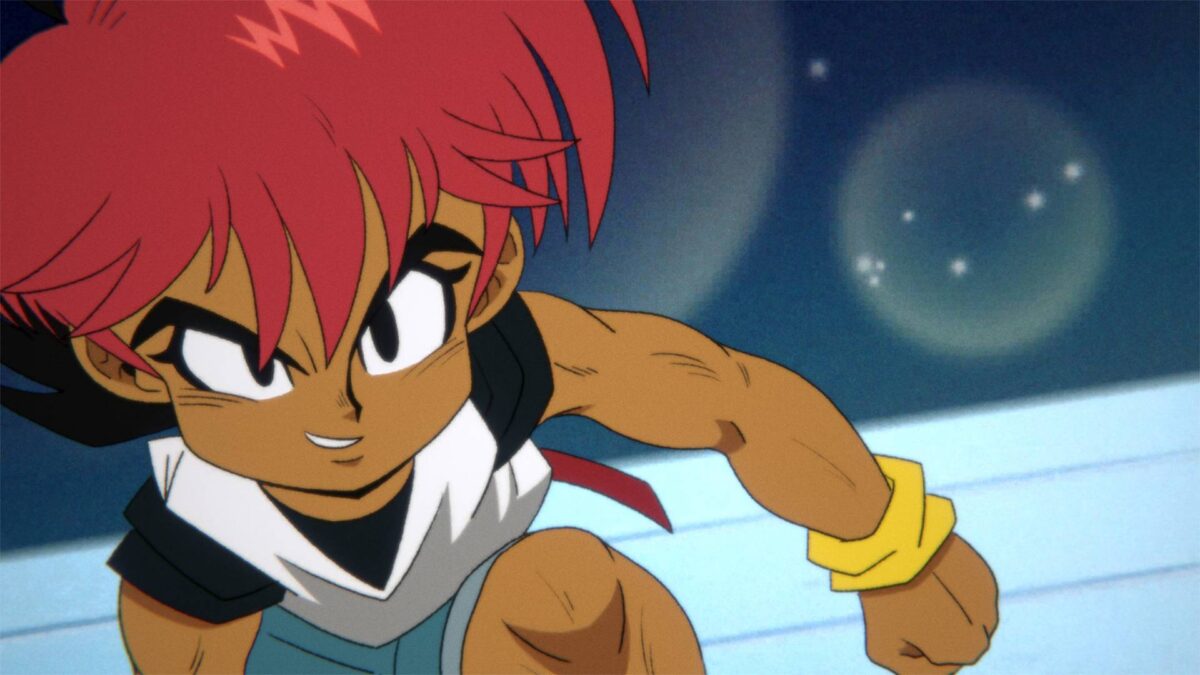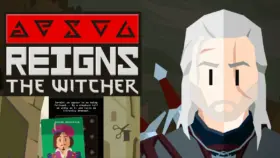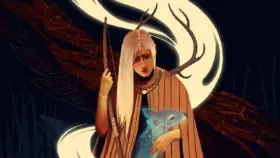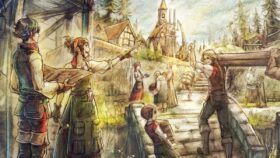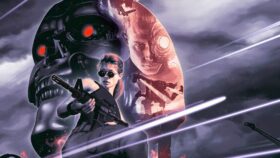There’s a specific magic to discovering a dusty VHS tape of a forgotten anime, a series that feels instantly familiar and special. Playing Wander Stars, the new turn-based RPG from Paper Castle Games, feels exactly like that. This isn’t just a game inspired by 90s anime; it channels the era’s heart and soul so perfectly that it feels like a playable piece of history.
The setup is a comfortable blanket of tropes for any anime fan. We join Ringo, a hot-headed young martial artist, on a quest to find her missing brother. Her journey collides with Wolfe, a mysterious, brooding wolf-man running from his past. They form an unlikely partnership to collect the pieces of the fabled Wanderstar Map, a treasure hunt that will take them across the galaxy.
It’s a premise that could have been pulled from a 1995 issue of Shonen Jump, and the game embraces this heritage with endearing sincerity.
What truly sets Wander Stars apart is its commitment to this identity. The adventure is structured across 10 “episodes,” each complete with its own title card and cliffhanger. At its heart is the brilliant “Kiai” combat system, where you don’t just select attacks—you build them yourself from a dictionary of words like “SUPER,” “FIRE,” and “KICK”.
Early Wander Stars previews upon the demo release last summer stirred up palpable anticipation, and after a delay to its original release date of August 1, Paper Castle Games’ latest title has finally landed.
Continue reading this Wander Stars review to see if this is the next exciting episode your gaming life has been waiting for.
Wander Stars Review
| Wander Stars: At a Glance | |
| Developer | Paper Castle Games |
| Publisher | Fellow Traveller |
| Release Date | September 19, 2025 |
| Platforms | PC, Nintendo Switch, PlayStation 5, Xbox Series X|S |
| Genre | Turn-Based RPG, Roguelike, Visual Novel |
| Key Inspirations | Dragon Ball, Cowboy Bebop, Sailor Moon, Trigun, Pokémon |
| Core Mechanic | Word-based custom attack creation (“Kiai”) |
Wander Stars Gameplay: The Aesthetic and Kiai System
The success of Wander Stars as a “playable anime” rests on its presentation, which is a masterclass in nostalgic design. The art direction is “unapologetically anime,” with character designs that immediately evoke the iconic work of Akira Toriyama.
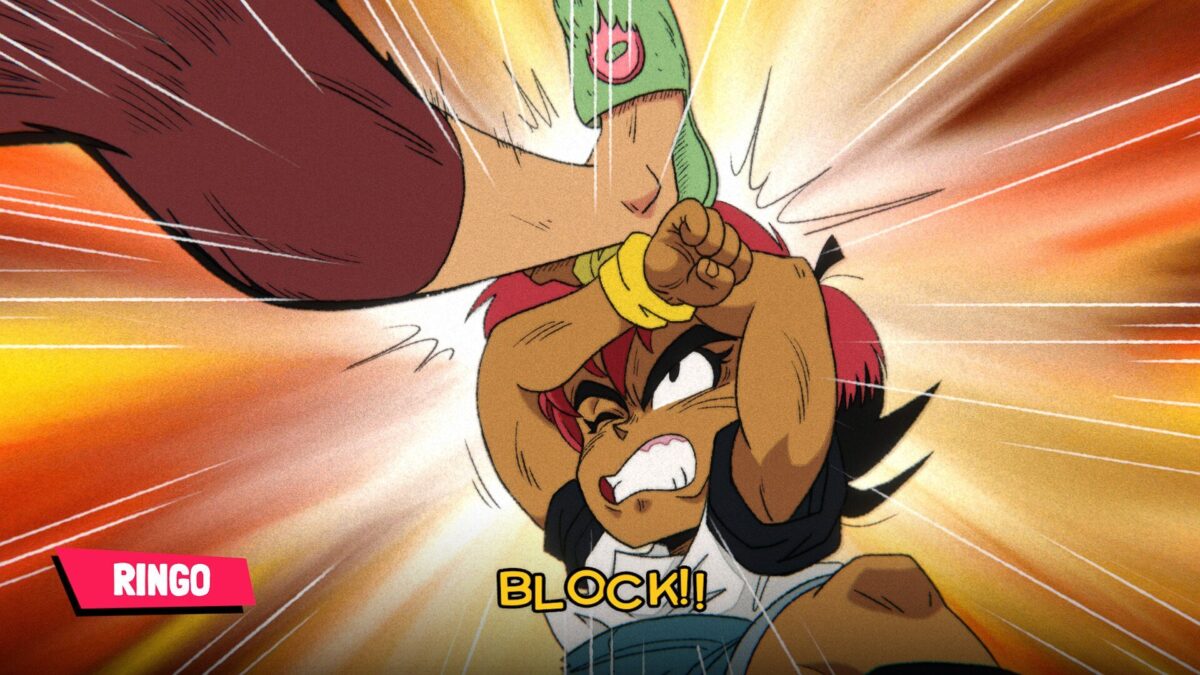
The game meticulously recreates the feeling of watching old shows, using subtle CRT grain filters and dramatic freeze-frames before finishing blows. The sound design is equally strong, with a fantastic, brass-heavy score and satisfyingly “cartoony” sound effects. The only missing piece is voice acting, a feature many fans wish were included to hear their custom-built attacks shouted aloud.
This all serves as the perfect stage for the game’s most innovative feature; the Kiai combat system. In a brilliant move, the game mechanizes the classic anime trope of heroes shouting their attack names. In combat, you construct custom moves by combining
Action Words (“Kick”), Modifier Words (“Super”), and Elemental Words (“Fire”). With over 200 words to collect, the possibilities range from a simple “Punch” to an absurd “Super Extra Fast Ice Stab”.
Beneath this playful surface lies a robust turn-based system. Limited “spirit” slots per turn, word cooldowns, and enemy weaknesses add a strategic layer.
A unique “Breaking Point” system challenges you to reduce an enemy’s HP to a specific range to make them surrender, rather than just knocking them out. Doing so rewards you with “Honor,” a currency used for permanent upgrades between episodes.
However, the system isn’t flawless. The biggest critique is the requirement to lock in your vocabulary at the start of each episode, which can stifle experimentation and lead players to rely on a few trusted combos.
A Grand Space Opera with Heart
The narrative of Wander Stars is a heartfelt and charming space opera that fully commits to its anime roots.
The story is built upon a foundation of familiar, beloved tropes, which it embraces with a sincerity that feels more like a loving homage than a cliché. We follow Ringo, an impulsive and earnest young martial artist, on a quest to find her missing brother. Her path collides with Wolfe, a brooding loner with a mysterious past, and the two form an unlikely alliance to track down the scattered pieces of the fabled Wanderstar Map.
At the core of the adventure is the dynamic between the ever-optimistic Ringo and the cynical Wolfe. Their banter and growing bond provide a strong emotional anchor for a journey filled with a colorful supporting cast of space pirates, quirky witches, and talking animals.
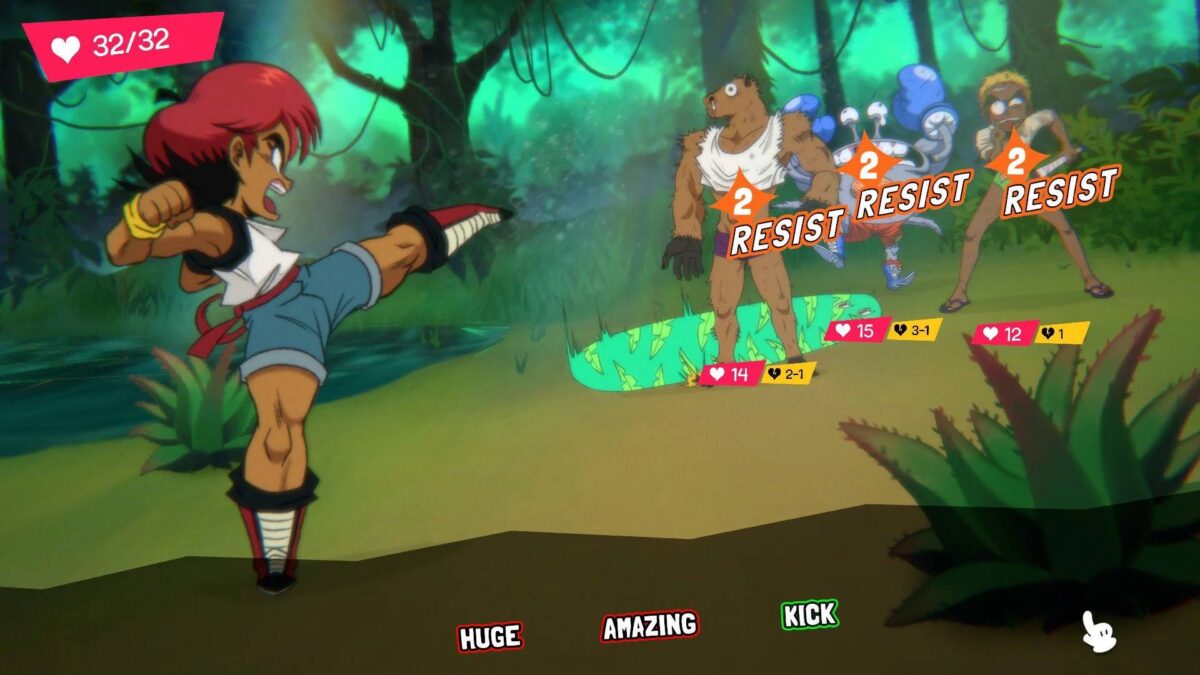
The writing is consistently sharp, balancing laugh-out-loud gags with surprisingly heartfelt moments that give the story genuine emotional weight.
One of the most brilliant narrative choices is the game’s structure. The entire adventure is divided into 10 distinct “episodes,” each presented with its own title card and a cliffhanger ending, perfectly mimicking the flow of a binge-worthy TV series. This format makes the grand story feel approachable, breaking it down into satisfying, hour-long chunks.
However, the story’s presentation isn’t without its flaws. The pacing can feel inconsistent, as the high energy of the battles often gives way to long, exposition-heavy dialogue sequences that can bring the momentum to a halt.
Unlike its anime inspirations, which often weave plot development directly into the action, the game sometimes separates the two, creating a jarring downshift in energy. Despite this, the story’s immense charm and personality make it a journey worth taking.
Wander Stars Final Thoughts
Wander Stars is a heartfelt and creative RPG that succeeds brilliantly in its mission to be a playable 90s anime.
It’s a game made with such a clear vision and love for its source material that its passion is infectious. While it has some quirks—a sometimes rigid combat system and uneven pacing—they are easily forgiven in the face of its overwhelming charm.
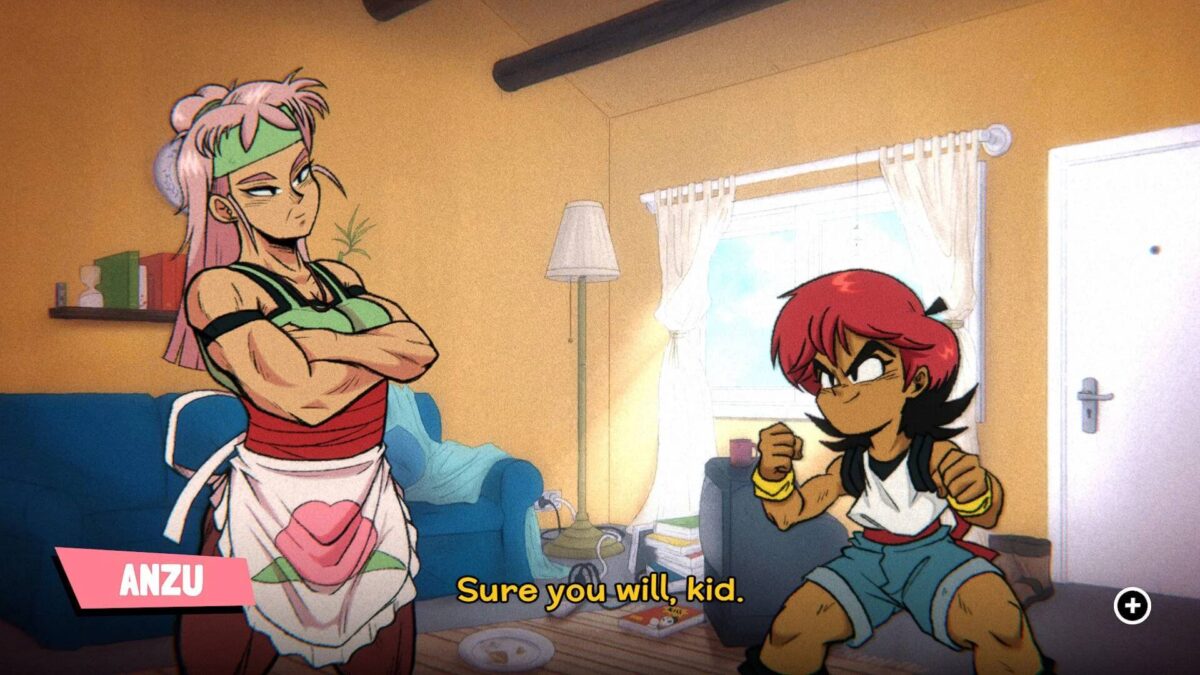
Is this game for you? If you grew up glued to the Toonami block, the answer is yes. If the idea of crafting and yelling “SUPER! DRAGON! FLAME! PUNCH!” fills you with joy, then this game is an absolute must-play. In an industry often dominated by safe bets, Wander Stars is a refreshingly bizarre and earnest adventure that isn’t afraid to be exactly what it wants to be.
| Pros | Cons |
| Brilliant 90s Anime Aesthetic: The art, sound, and episodic structure perfectly capture the feeling of a classic anime. | Rigid Combat Elements: Locking in your vocabulary at the start of each episode can stifle experimentation and lead to repetitive combos. |
| Innovative Kiai Combat: The word-building mechanic is creative, fun, and surprisingly deep, turning a classic trope into a core gameplay feature. | Uneven Pacing: Long dialogue sequences can sometimes slow the game’s momentum between exciting battles. |
| Heartfelt and Funny Story: The game features a charming cast of characters and a story that balances goofy gags with genuine emotion. | Lack of Voice Acting: A commonly cited missed opportunity that would have fully completed the anime illusion. |
| Engaging Progression Loop: The blend of temporary roguelite buffs and permanent upgrades creates an addictive and replayable experience. | Occasional Jank: The game has some minor bugs, janky animations, and UI clunkiness. |
